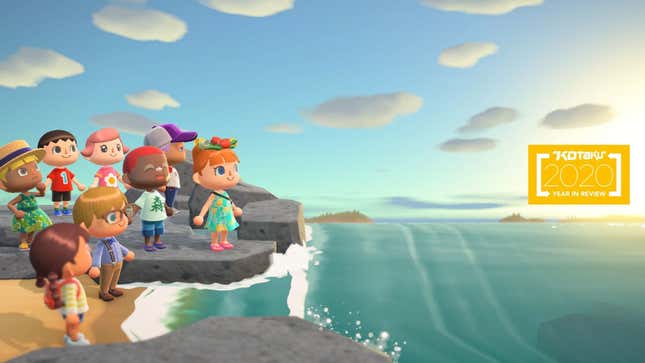
When I think about diversity in last year’s crop of big-budget games I can see the bright spots. Some of PlayStation’s marquee games, for example, featured some of the most diverse casts I’ve seen with men of color and queer women front and center as main characters. But there’s still work to be done in the games themselves and in the studios where they’re made.
It’s hard to quantify a year in diversity in video games. It’s not about awarding the most “woke points” to games starring not-white, not-straight, not-dudes but assessing how thoughtfully the creative teams behind these games implement their diversity. Important things to think about are if these characters in these games are ticking boxes or are their identities integral to their character.
It’s also important to note that I don’t have all the answers. I am a Black, queer, woman, but I’m also cis and able bodied. What doesn’t work for me may be fine for somebody else, and what does work for me may not necessarily work for someone at axes of marginalization different from mine. What I want is to have a discussion about 2020’s games from a diversity perspective: what they’ve done right, what they missed, and what I’d like to see them do in 2021.
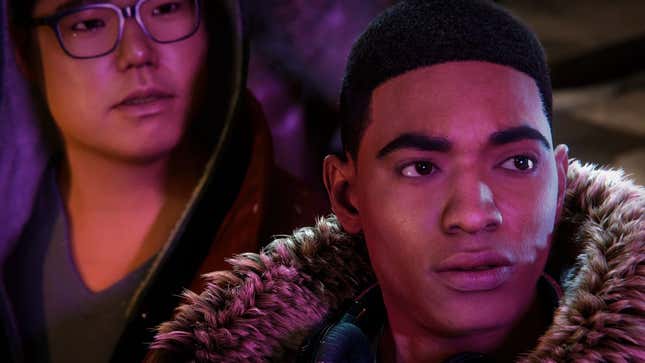
More Diverse Casts
2020 was a great year for diverse game protagonists in big-budget, or AAA, games. There was Half-Life Alyx’s Alyx, The Last Of Us Part 2’s Ellie, and Miles Morales in the Spider-Man game of the same name, to name a few. There were also a lot of games that allow you to make your own character which only adds to the potential diversity of AAA game protagonists.
That diversity is less impressive if these characters’ identities aren’t integral to their character or if they’re just window dressing. In his review of Watch Dogs: Legion at Vice, Austin Walker wrote about the game’s touted ability to let you play as anyone you can find on the streets of its virtual London. He praised that feature for letting him assemble a multi-cultural, multi-generational, and multi-racial team. But he also notes all that diversity exists only at the surface level, while the fact that cops are often the most powerful teammates you can recruit undermines the game’s message of revolution.
“Between the way the game fails to simulate these characters existing as more than just your action figures and the way it encourages you to recruit along an established sociological power curve, Play As Anyone feels less like an interactive collective and more like mechanized instrumentalization.”
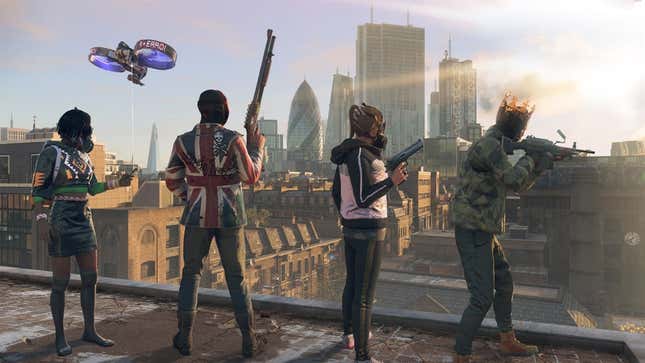
In other words, the diversity is there but it says nothing. I got the same feeling from The Last of Us Part 2. There are tons of queer characters and characters of color but a lot of them meet shockingly violent ends because of or at the hands of two white women. Same thing with Star Wars: Squadrons. Hell yeah! People of color. Oh no! They’re space fascists.
That’s not to say that I require all my characters of color to be squeaky-clean heroes. To use a Star Wars game from 2019 as an example, I loved how Jedi: Fallen Order featured flawed women of color on both ideological sides of the Force in Cere Junda and Second Sister. This year’s Spider-Man: Miles Morales also does a good job of portraying characters of color on both sides of the good/bad divide in a game that focuses on a culturally rich Harlem, New York.
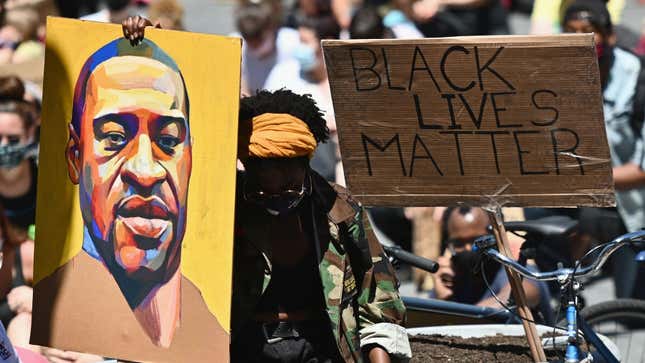
Black Lives Matter
Last summer, video game companies added their voice to the national conversation about police brutality, offering support for Black Lives Matter. Companies issued statements in support of Black employees, fans, and communities, and some backed their words with monetary donations, while others promised to do better without exactly naming what “doing better” is. Video game companies have a diversity problem and all the in-game diversity is rendered meaningless if that same diversity isn’t being championed behind the scenes. Xbox head Phil Spencer wants more Black executives. Streamers want more inclusion from console makers and streaming platforms when it comes to whom they grant access and opportunity.
So what are the big companies doing? It’s still a little unclear. These companies have mostly been silent since June regarding what continuous action they’re taking. It reminds me of Black History or Pride month, when game companies tweet and change to rainbow avatars for a month to show solidarity but it’s business as usual the other 11 months out of the year.
But change is a marathon, not a sprint, and some companies are making progress. Despite its ongoing sexual misconduct issues and the logistics nightmare of the pandemic, Ubisoft hosted its Black Game Dev mixer in July with panels of Black game professionals telling their stories and offering tips on how to break into the industry no matter their skillset. Riot Games announced that the first beneficiary of its Underrepresented Founders Program would be the Afro-fantasy MMORPG The Wagadu Chronicles. Facebook Gaming is even offering to pay Black streamers as a part of its Black Gaming Creator Program.
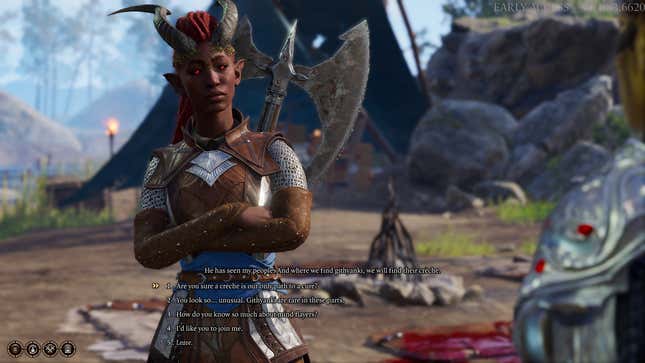
Character Creators
Just as important to having diverse characters in a game is equipping players with tools robust enough to create diverse characters for themselves. I talked a lot about character creators last year. Some of them managed to account for presentations outside of thin, white, bodies with straight hair, while others did not. And some that did still found that a lot of players made characters who were still white guys, proving that the ability to create your ideal self matters even when your ideal self is the default state for most video game protagonists.
Animal Crossing New Horizons had my favorite character creator of 2020. In that one, gender is merely a suggestion that doesn’t lock you out of a particular choice. The choices themselves represent a diverse range of skin tones and hair styles/textures without overwhelming the player. You can change anything about your character at any time.
On the other hand, Cyberpunk 2077 was 2020’s big character creator disappointment. From really bad UI controls to odd and unnatural-looking skin colors to completely missing the point when it comes to gender expression (by tying gender presentation to voice), the game’s character creator failed to live up to its ambition of “you can become anyone.”
I’m still miffed by the idea of hairstyles gated by sex—a trap even the most expansive character creators in Cyberpunk 2077 and Baldur’s Gate III fell for. Meanwhile the comparatively simple Animal Crossing character creator smartly allows both “gender” options access to all available hairstyles. I did appreciate the dreadlocks in Cyberpunk 2077 and in Baldur’s Gate III though, I’m always on the lookout for a good-textured dreadlock style.
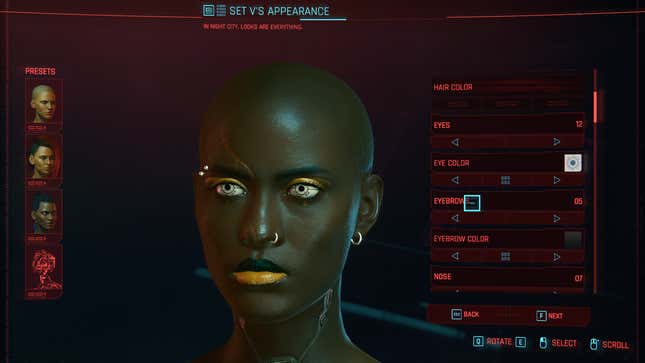
The biggest miss across many character creators last year was body diversity. I want customizable body diversity to be as ubiquitous as options to select your character’s skin, hair, and eyes are. But in just about every game with a character creator, you’re either rail thin or a bodybuilder with little variation. I’d like to see more games take Crusader Kings 3’s approach and include simple sliders that govern your character’s body size.
One final thing I will say to any game developers reading if your game has a customizable protagonist, ala Immortals Fenyx Rising, consider making them a person of color for all those promotional materials, breaks up the monotony and sends a nice message y’know.
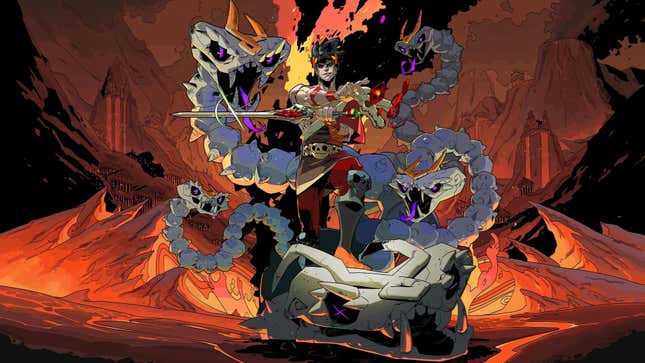
Hades
Hades represents my video game ideal. It manages to capture the sentiment of this tweet—“I want shorter games with worse graphics made by people who are paid more to work less and I’m not kidding”—while also featuring a cast chock full of diverse representation.
It’s set in the realm of Greek gods, who are usually presented as white, but in this game, Athena is a Black woman. Ares is a Black man. Primordial Chaos is gender neutral, Death is gay, and the main character Prince Zagreus is the personification of the disaster bisexual.
When I asked Hades creative director Greg Kasavin about his team’s choices for these characters, he gave a surprising answer: “As we discussed and researched the Olympians from canon sources, something stood out that in retrospect was obvious: They’re called the Greek gods because they were worshiped in ancient Greece, not because they themselves are ethnically Greek. In other words, they didn’t all have to be Greek, or even white-passing for that matter.”
While I appreciate the stunning simplicity of Supergiant’s approach to diversity in Hades, game designers do not have to justify the existence of queer people or people of color in their media that would traditionally exclude them (oh my god I am looking at you Bridgerton). Just fucking do it. I want every game to be like Hades. I don’t mean that in a “every game from now on is a colorful roguelike about escaping hell” way (although that would be kinda awesome) but in a “hella queer people and people of color” way. “But Ash,” you say. “Weren’t you just saying how diverse characters ring hollow when it’s only skin deep? Isn’t Hades’ representation only essentially skin-deep too?” Yes and no. It’s not easy talking about diversity. There are no hard and fast rules a game creator can follow to “make their game diverse”. The on-screen wealth of diverse characters that don’t really work for Watch Dogs: Legion does work for Hades and that’s because of the context of the world Hades creates. We’re talking about Greek gods. In just about every video game iteration of them so far they’re depicted as white-passing. (And that’s okay!) Hades did something different, revolutionary, and much appreciated by yours truly by bucking that trend.
2021 And Beyond
In terms of diversity, 2021’s AAA games lineup at first blush looks just okay. Some of the only big games I can think of starring POCs (or protagonists of color) are Deathloop and Far Cry 6. There’s also a healthy smattering of upcoming games starring women: Horizon: Forbidden West, Bayonetta 3 (please!), Chorus, and Returnal.
In 2020, the indie devs were the ones doing diversity the best. Raji: An Ancient Epic is a game developed by Nodding Heads Games based in Pune, India and tells the story of a girl’s quest to find her kidnapped brother and how the Hindu gods aid in her search. Umurangi Generation is a pre-apocalyptic photography game starring an indigenous Maori character created by Maori solo dev Naphtali Faulkner. These games delighted me and my colleagues and they represent the best of video games when the industry makes space for marginalized people to tell their stories. I’m looking forward to games like Goodbye, Volcano High and Kena: Bridge of Spirits to fill the void the bigger studios sometimes leave in favor of their corporate-approved dudeguy protagonists. And I will look to indies to lead the way again next year.
And while I appreciate what 2020 has done in giving me diverse protagonists, character creator options, and stories, I am greedy and I want more in 2021.